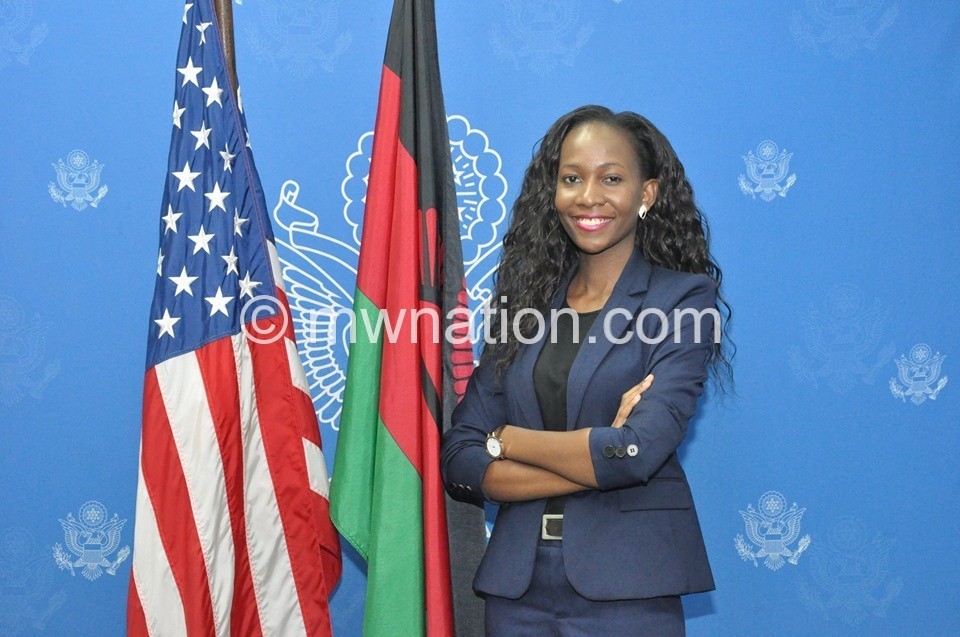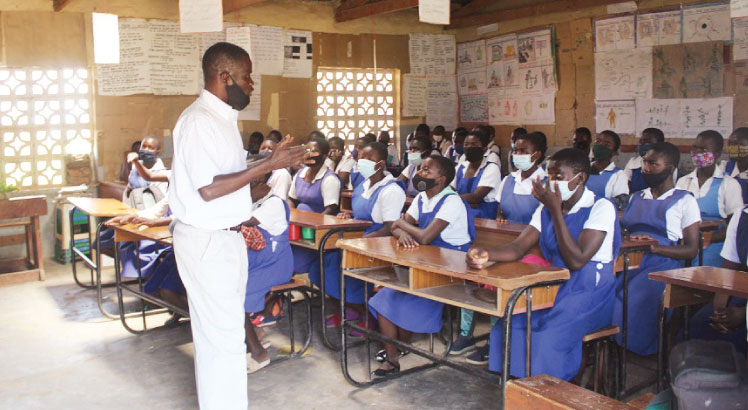Agnes Kanjala creating digital financial platforms/ uplifting farmers lives
Agnes Kanjala designs digital financial services products geared toward achieving financial inclusion in Malawi and Zambia.
She is a 2019 Mandela Washington Fellow, a flagship of Young African Leaders Initiative (Yali) which draws outstanding young people making a difference in their communities across Africa.

Attending Oklahoma State University, in the US on leadership in business track, Kanjala is also an avid promoter of local smallholder farmers.
She has been intrigued by how digital wallets or mobile money wallets have shaped the world of finance across the continent for a long time.
She observes that the wallets provide easy access to financial services to people in remote areas that do not have access to banks or any form of financial services.
“One of the latest products I worked on in Zambia was a digital wallet called Zoona Plus which allows customers to earn interest on their savings and access credit among other things,” she says.
Kanjala noted that In Malawi, financial literacy is one of the key things that is missing.
She says people do not know what financial services are available on the market and how those products can help them better manage their money.
In both Malawi and Zambia, she says only four out of 10 people access formal financial services, meaning the majority of the population are financially excluded.
According to Kanjala, financial exclusion is high in rural areas, especially among women.
When a high proportion of people are excluded from the financial system, she notes that they do not have the opportunity to do the most basic things, including sending or receiving money, which can be a major problem when making payments.
Companies and the government are also losing out on an opportunity to create social impact and generate revenue, says Kanjala.
Although her digital financial interventions remain outstanding, Kanjala has also been working with smallholder farmers to increase their productivity and help alleviate hunger and poverty.
She recently launched The Farm, a social enterprise that partners with smallholder farmers to increase productivity of their farm and provide them with an alternative source of income through livestock production.
Prior to The Farm, Agnes supported the setup of the One Acre Fund Malawi, whose operations are now serving over 15 000 farmers.
“I heard about One Acre Fund through a Facebook job advertisement and was inspired by the impact they were creating in other countries in east Africa, reducing hunger and poverty among smallholder farmers,” says Kanjala.
Captivated by how the fund developed and engaged young people in their work, she applied and attended their walk-in interview, competing against 100 other graduates.
She was hired to support setting up the organisation from scratch.
Following expansion, her role became centered on monitoring, evaluation and identifying new impactful opportunities.
Today, One Acre Fund has provided farmers with tools, including financing and training.
Through her work at One Acre Fund, she interacted with a lot of farmers whose one song of sorrow has been lack of access to agricultural inputs, insufficient income from their farms to support their household.
She developed the concept of the The Farm through conversations with farmers.
She has provided farmers with inputs and support through an out share agreement and has its first cohort of 100 farmers.
Malawi is an agricultural driven economy and the majority of the population are smallholder farmers.
However, Kanjala says: “There is a large gap in knowledge, technology and financing that our smallholder farmers have access to.”
In addition, she says farmers lack access to competitive markets and opportunities to process and add value to their products.
These gaps in themselves, she notes, present opportunities to create social impact among the farmers and generate value.
“There is a lot that can be done at production. I would encourage us to provide farmers access to information on improved farming techniques, technology and facilitate access to financing for them to afford all the tools they need to succeed,”
“We can advocate to protect our farmers from agricultural risks through agricultural insurance and agricultural policy change,” observes Kanjala.
She adds that evidence from rural areas suggests that smallholder farmers, particularly the poor, have been the main losers through unfair trading practices, monopoly power of private traders and lack of reliable markets for agricultural produce and inputs.
Kanjala says thousands of farmers across various agricultural productions mourn the poor gains they get after restless periods of cultivation.
She observes that the peanuts they get after they sell are not enough to sustain their families or grow any income.
Kanjala grew up in a close knit family of six children in Zomba to a primary school teacher and her father a curriculum developer.
As a child, she was not a high performing student.
“I had my struggles. I was fortunate to have friends and family that were supportive and helped coach me to become better,” she says.
She learnt from a young age the power of asking for help, and having a strong support system among friends and friends that empowered her to pursue her studies. The support that led her to look beyond and is helping her reach out to others.
She obtained a Bachelors of Science Degree in Agricultural Extension from Bunda College of Agriculture and a Masters in Business Administration (MBA) from African Leadership University in Rwanda.
For most of her career, she has worked with a range of social enterprises working towards achieving financial inclusion, eliminating hunger and poverty; and most recently, protecting farmers against agricultural risk.
A research and development specialist by profession, Kanjala is currently a research lead for Zoona—a FinTech (Finincial Technology) company.
Speaking to young people aspiring to grow the digital financial market, she says, there is large gap in the market at present with regards to the financial services and the products that consumers need.
“Learn to listen to consumers, understand their challenges and pain points. This will enable you to identify the right problem and design the most relevant solution,” she advises.
Being a part of the Yali network as a Mandela Washington Fellow is a great privilege for her.
It has provided her an opportunity to interact with upcoming leaders in Africa and the USA to exchange ideas, strategies, techniques and become part of a larger network, centered towards creating impact in business and public sector.
She intends to adapt the skills she learns from the institutions and from other fellows to help support and develop other leaders in Malawian communities.
The skills gained will enable her to become a better change agent in her agricultural and volunteer work as she aims to create more meaningful, relevant and impactful solutions for communities.
“It would be a dream come true to see more young people attend this fellowship and become collaborators in creating lasting social change,” says Kanjala.





